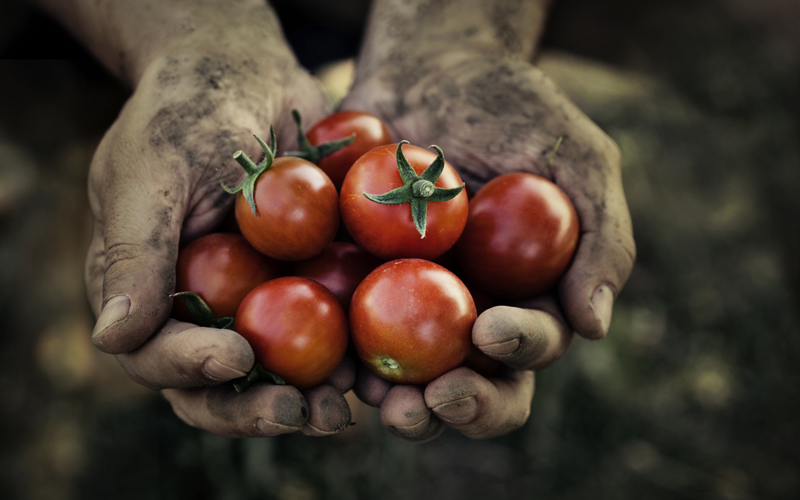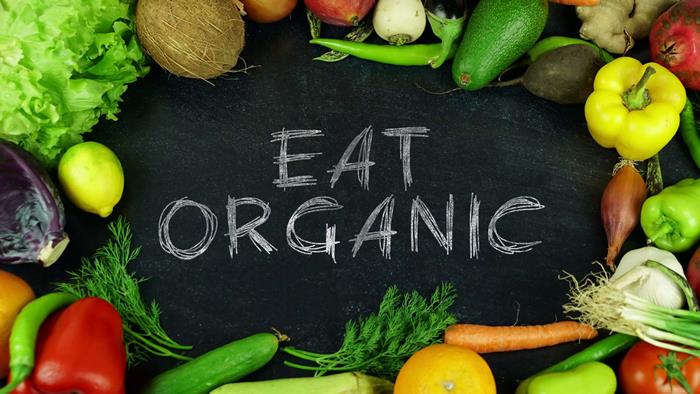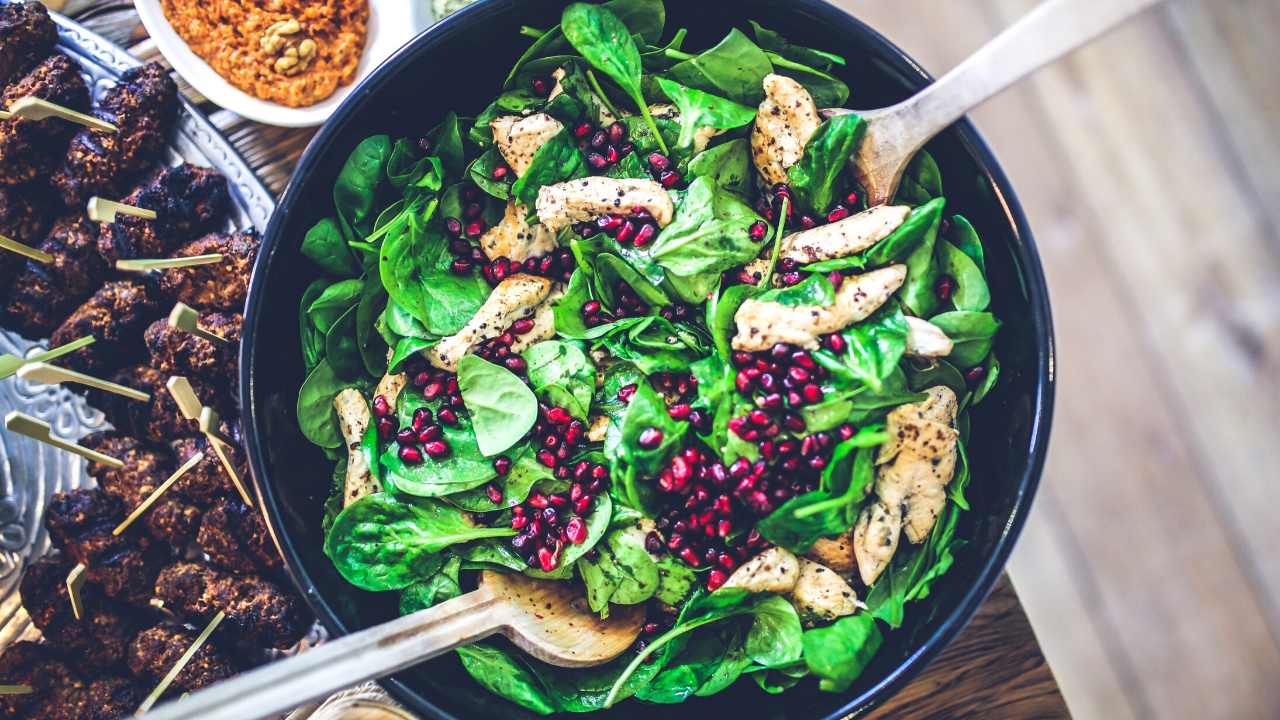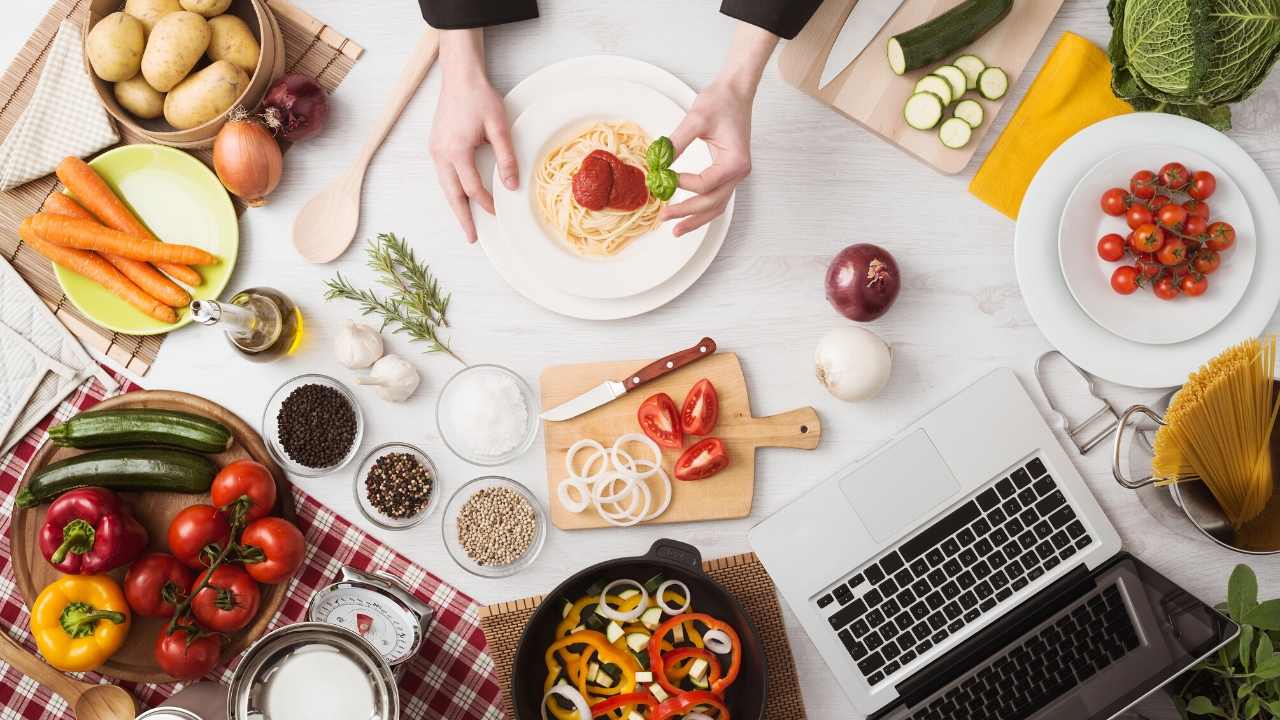Our aim goes far beyond delving into recipes and teaching culinary techniques; we intend to promote sustainable eating as an essential part of preserving humans’ relationship with nature. As such, we invite anyone who shares this same conviction or has a secret family recipe they would like to share with the rest of us to visit us online or contact us at [email protected] for all collaborations and submissions. Let’s show appreciation for those that dedicate their lives using natural deliciousness to establish meaningful human bonds through cuisine!
For now, love yourself and enjoy this one ...

Frequently Asked Questions
What are organic products that can be used on the skin?
Organic skincare products do not contain synthetic chemicals like parabens,phthalates, mineral oils, petroleum jelly or petrolatum.
Organic skincare products are free from artificial colours, fragrances and preservatives.
They are also formulated to help maintain healthy skin, prevent premature aging, promote healing after injury, and support overall well-being.
These are some of the terms that you will see when you shop for organic products
- Paraben Free - these are a group of chemicals used to keep certain cosmetic products stable, but they can be toxic if consumed in large quantities.
- Fragrance-Free – The product does not contain essential oils or perfumes.
- Cruelty-Free: No animals were hurt during manufacturing.
- Natural Ingredients: The ingredient is naturally derived form the animal or plant.
- Vegetarian/Vegetarian- The ingredients are either vegan/vegetarian.
- Gluten-Free is a label that indicates that no gluten was added to the product.
- Non-Toxic-The product doesn't contain any toxic chemicals, carcinogens, and/or other harmful substances that could be harmful to your health.
- Biodegradable - the product will break down into harmless components when discarded.
- Pesticide Free – There were no pesticides used during the harvesting or growing process.
- GMO-Free refers to the fact that no ingredients in the product contain genetically modified organisms.
- Certified Organic means all ingredients were grown in ways that preserve the soil, water and air.
What's the difference between organic foods and inorganic food?
Organic food is free from pesticides, chemical fertilizers and sewage sludge. It can also be grown without irradiation or genetic modification. Organic farming practices promote soil health, water quality and animal welfare.
Inorganic foods are produced using chemical fertilizers, pesticides, and sewage effluent. Irradiated foods are treated with radiation; genetically modified organisms (GMO) are created through biological engineering techniques.
"Organic" and "natural" are often interchangeable. However, natural does not necessarily mean organic. Products labelled "natural", however, may contain synthetic chemicals.
Organic produce is often more nutritious than conventional produce, as the soil has fewer pesticides and harmful chemicals. Organic farmers are free from artificial fertilizers and pesticides.
What is inorganic foods?
Organic food is produced without the use of artificial fertilizers and pesticides. Inorganic foods contain these chemicals, which may cause health problems.
Organic food is free from harmful substances like pesticides and herbicides. These chemicals can harm humans and animals.
Inorganic food is meat, fish, eggs and dairy products, including butter, yogurts honey, yogurts, butter, cream, cheese, butter, yogurts, honey and grains.
The term organic refers to the way an agricultural product is grown. Organic farming, for example, uses natural methods and soil amendments in order to grow crops. Conventional farming, however, uses pesticides and synthetic fertilizers.
U.S. Department of Agriculture guidelines must be followed when organic food is labeled. According to the National Organic Program Standards, all certified organic food must be free from prohibited materials such as antibiotics, growth hormones, genetically modified organisms (GMOs), and industrial solvents. Organic food must not contain toxic chemicals, petroleum-based fertilizers or sewage sludges.
What should I be looking out for when shopping organic products
USDA-certified organic labels are recommended. This certification means that the product is certified organic by USDA. On packages, boxes, cartons or cans, look out for the USDA Organic seal.
When you shop for meat, ensure that it comes from cows who are fed organic feed. Ruminants are cattle that chew their cud. Ruminant cattle have 4 stomach compartments: Rumen, reticulum and omasum. If a cow is to be labeled organically, all parts must be organically fed.
Make sure you only buy chicken from chicken farms that are fed organically and have never been given antibiotics. Chickens can eat both animal and plant food. Omnivorous chickens possess a digestive tract made up of a crop.
It is important to ensure that dairy products are from cows that were fed 100% organic feed. Like ruminants and dairy cows, they have four stomach compartments. Milk comes from the fourth stomach compartment--the udder.
To find out the percent of the feed the animals received when you purchase other types livestock, be sure to read the labels. Pork may be labeled "95% Organic" which means that 95 percent of its feed was organic.
What are the top organic products?
Today, organic food is the fastest growing industry. Even though we have come a long ways from our roots there is still plenty of room for growth.
Organic products are the future. Organic products are safer, more sustainable, and cheaper for consumers.
But they tend to be more expensive. That is why we developed the Organic Food Index. We wanted to determine which foods are the most popular among shoppers today and whether these trends are changing.
These findings show that organic foods are becoming more popular. The number of Americans shopping for organic food grew by nearly 50% between 2011 and 2012.
The USDA reports that organic production increased 10% last year. Currently, organic food accounts for 9% in the U.S. agricultural production.
Organic food is certainly on the rise but consumers are still not able to afford it. According to the Organic Trade Association, (OTA), organic food retail prices are nearly twice as expensive than conventional options.
The organic food sector is growing faster than other segments of the food supply. If you examine the data closely, you will see that organic foods have grown steadily in consumption since 2009.
According to OTA however, the volume in supermarkets of organic products grew by 14% from 2010 to 2011.
This is because of consumer demand for healthier products, which explains the rise in organic food sales across all age categories.
The younger generation is however leading the charge for organic food. Millennials are twice as likely to buy organic food compared to baby boomers. The 25% of organic food purchase made by younger adults below 35 are made up of young adults.
Is organic meat healthier?
This question is probably answered if you've been paying close attention. But here's the rub, organic food is becoming more popular while conventional food continues to fall out of favour.
Organic foods continue rising in popularity because they are healthier. Organic products are healthier for us and the environment.
However, this coin has two sides. Organic produce takes more time to grow and requires greater resources. This means that organic food costs more money than its non-organic counterpart.
Organic meats are generally more expensive than conventionally raised animals. But there are ways to cut costs without sacrificing quality.
Locally grown produce is a great way to save money. Locally grown produce helps to keep the prices down because farmers are given incentives to grow healthy crops.
Another way to cut costs is to look for deals. Many organic products can be purchased at a discount.
You can also save money by eating less meat. Because of the amount of feed required to raise livestock, meat production can become expensive.
There are many reasons that organic food is better than regular food for our bodies, and also for the planet. However, it is important to remember the price.
What are organic foods and how do they compare?
Organic produce is produced without synthetic fertilizers or pesticides. There is no use of growth hormones and no animal testing. These crops can be grown naturally by farmers, and they don't need to be treated with chemicals to control pests or weeds.
Organic farming practices can also preserve soil quality by reducing erosion, and conserving water resources. Organics have more nutrients than traditional food, which makes them better for our health. Organic foods are often higher in fiber, lower in fat, and less calories than those produced conventionally.
Statistics
- To provide the highest quality products and services to every customer, with a dedicated workforce that puts the customer first and takes the extra step to achieve 100% customer satisfaction and loyalty. (hollinsorganic.com)
- Nutrients like omega-3 fatty acids were up to 50 percent higher in organic meats and milk than in conventionally raised products.[3] (en.wikipedia.org)
- When packaged products indicate they are “made with organic [specific ingredient or food group],” they contain at least 70% organically produced ingredients. (usda.gov)
- As for organic meat, regulations require that animals be raised in living conditions that accommodate their natural behaviours (like the ability to graze on pasture), fed 100% organic feed and forage, and not administered antibiotics or hormones. (usda.gov)
External Links
[TAG17]
[TAG20]
[TAG22]
[TAG25]
- A Review of Journal of Toxicology and Environmental Health: Cancer Risk and Occupational Pesticide Expositions: Part B: Vol 15, Number 4
- Genetically modified food: safety, risk and public concerns - a review - Journal of Food Science and Technology
How To
Organic foods: Are they healthier and more nutritious than conventional food?
Organic foods can be grown without the use synthetic fertilizers and chemical pesticides. They are grown under natural conditions, without artificial inputs like pesticides, herbicides hormones, antibiotics, genetic engineering, and fungicides. Organic farming methods include crop rotation, cover, composting animal manure and recycling wastewater.
The USDA National Organic Program (NOP), established in 2002 to regulate production, handling and processing of organic products sold in the United States. The NOP regulations ensure that organic agricultural products are produced according to federal standards outlined in the Federal Food, Drug, and Cosmetic Act. Additionally, organic products must not contain prohibited substances like pesticide residues or genetically modified organisms.
For producers in the USA who want their products "organic", there are two kinds of certification programs: one for farmers or ranchers and one for manufacturers. Both programs require audits of operations each year to ensure that they are meeting strict standards. This service is offered by several certifying agents, such as the CCOF Certified Organic Farmers & Ranchers or Quality Assurance International. All three organizations provide third-party verification of farms' adherence to strict guidelines regarding environmental stewardship, labour practices, and livestock care.
According to USDA’s Economic Research Service, organic farming accounted for $4.7Billion in 2013 sales. Retail spending on certified organic products reached nearly $1.5 Billion in 2013. This is a 23 per cent increase from 2009. This period saw a 12 percent increase in grocery store sales. Spending on direct purchases of organic produce increased by 29 percent, while spending on meat, poultry, eggs, dairy, and seafood grew by only 1 percent.
Organic food is more expensive but the quality of organic food is worth it. Consumer Reports found that 88 per cent of respondents would be willing to pay more for organic food if the nutritional value was higher. Health Affairs also reported that organic food intake is associated with fewer health problems, such as obesity, diabetes and heart disease.
While there is no evidence that organic food can prevent or treat any diseases, there are some studies suggesting that eating them may improve your overall health by reducing your exposure to pesticides and other contaminants. In 2010, a review that included 31 studies concluded that organically-raised beef had lower levels of parasites and toxic chemicals than conventionally reared beef. A separate analysis of 11 studies published in 2012 reached similar conclusions.
A 2014 report from the Environmental Working Group looked at data from the Department of Agriculture's Agricultural Marketing Resource Center and found that the incidence of foodborne illness caused by E. coli, salmonella, listeria monocytogenes, campylobacter, and verotoxin-producing E. coli O157:H7 decreased when comparing organic to non-organic chicken, pork, beef, lamb, milk, and cheese. The report also pointed out that E.coli 157 caused human illness declined in both children and adults following 2006 when USDA established stricter organic standards.
Resources:
 |
[TAG28]Educational video for children to learn what it means to have healthy eating habits. Eating is the process of taking in food. This is how we obtain the |
 |
[TAG29]My Health Challenges, Tips For Growing Food Hydroponically & A Peek at my Bedroom Houseplant Jungle |
 |
[TAG30]Sign up for a 14-day free trial and enjoy All of MyHeritage's amazing features. If you decide to continue your subscription, you’ll get a 50% discount. Link |
 |
[TAG31]Reacting to NEW ARC INCOMING. AND NOT THE ONE YOU ARE EXPECTING. + LIFE AND HEALTH UPDATES + HEALTH UPDATES...LEXAPRO? Please do not use this video or |
 |
[TAG32]In this video I travel through the mountains of Altai with a friend of mine to visit his farm and help separate off some of his steers ready for processing |
 |
[TAG33]Organic Cultur |
 |
[TAG34]This is what you should include in your diet to get high protein from vegetarian foods. Good protein sources on a vegetarian diet can be difficult to get, but |
 |
[TAG35]#organic #tamil #health #wellness #live #livestream #food #season #traditional |
 |
[TAG36]Are you aware of the dietary choices that can impact osteoporosis? This article delves into eight specific foods that people should avoid to maintain bone |
 |
[TAG37]MEET THE FITTEST 61 Yr Old In The WORLD|5 Foods I ONLY EAT |Central Park Joe 2024 Timestamps 0:00: Introduction to Central Park Joe and his significance |
 |
[TAG38]Get the Hidden Ingredient that Lowers Cholesterol Level Below 100 And Clears Out 93% Clogged Arteries Here! - https://bit.ly/46r0k0N Welcome to our YouTube |
 |
[TAG39]Researched articles about eating Organic food |
Did you miss our previous article...
https://belovedsaffron.com/organics/im-just-eating-apples-day-1
.png)





